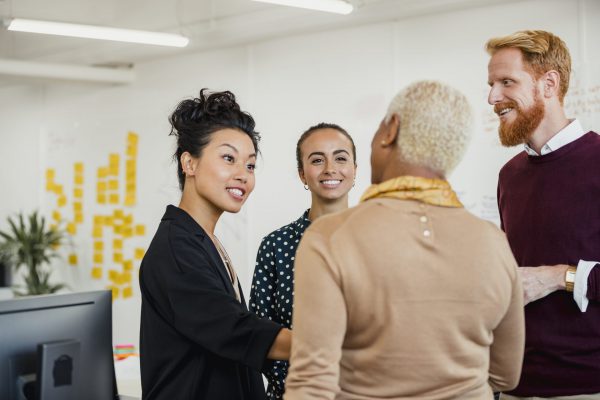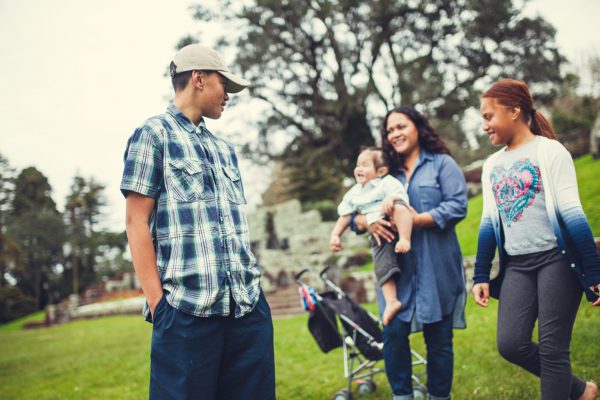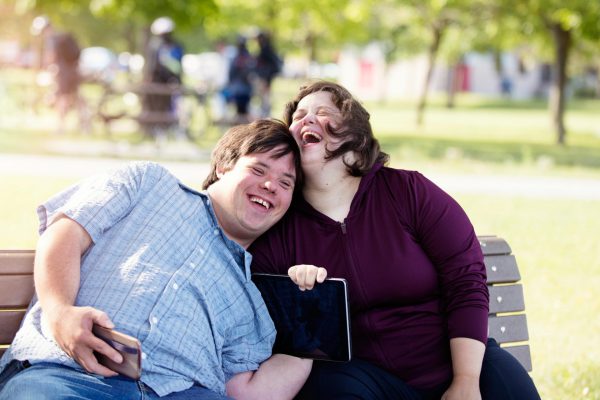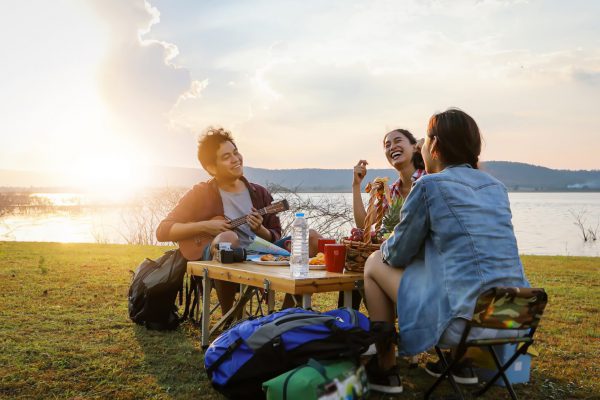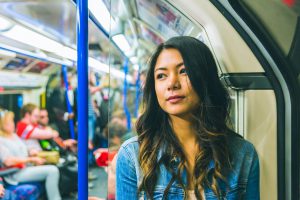Be like me
-
Sharing common beliefs, values and goals
Sharing common beliefs, values, goals and passions with others can help grow your sense of belonging. Participants spoke about how they felt when they shared about themselves, and others listened to and respected what they shared. They talked about sharing about all kinds of things - including ethnicity, culture, work, hobbies, life experience, travel, belief systems, and philosophies.
When I am with people who are like minded like myself - I feel safe, secure, and known.
-
When I am with people who are like minded like myself - I feel safe, secure, and known.
-
Familiarity is something that helps me to belong. My first thought is family, but it’s not always a place of belonging either. It’s familiar, I know the values, the expectations. I don’t have to overthink things, I can just be. That goes across the board, doesn’t matter which group or friend I’m with. If there’s a sense of familiarity.
-
I was thinking about the values base – you strongly align to people who have the same values base as you. Can you still have your connection and feel like you belong when you’re with people who don’t have the same values as you?
-
I was talking about that shared sense of purpose [earlier in the conversation] of where I was getting that in the workplace. But over the years it’s been in many different groups. You move out of them, for example when children grow up, you move into something else. You do move in and out of different groups and that sense of belonging changes. It’s not a bad thing, it’s just part of life. The shared sense of purpose and values.
-
-
Whānau, family & friends
Whānau, family and friends can help reinforce your sense of belonging. Participants shared feeling a sense of safety and comfort, being fully accepted by close friends and family, and not having to uphold any pretence. Knowing your whakapapa or ancestry is important - who you are, your history, the history of your people. Their stories can support your self-worth and personal belonging.
I think home is where I fully belong. My husband accepts me in my wholeness. I feel completely safe at home. I can just be me. I don’t have to pretend.
-
I think home is where I fully belong. My husband accepts me in my wholeness. I feel completely safe at home. I can just be me. I don’t have to pretend.
-
Us two [my sisters] and my brother, we had a lot more rainbows and sunshine, than clouds.
-
When I’m with my family, I like the social aspect. I like being around people. It’s hard to do that when you don’t know the people, or you don’t like them.
-
I’ve got an interesting perspective. I’m glad this is a secure environment. Although I look Māori, I was actually born to a young teenage mother, Māori, and a young father, Māori. I was adopted into a highly privileged community in [location]. Raised up by parents who were clearly European and white. We knew very early on that we were chosen children and adopted. My older brother is part Māori and Pacifica. We knew early on we were chosen children. Our father spoke te reo, and thought he was Māori. So, I was encouraged early on to explore my Māori side.
-
My grandmother gives me the strength and the push. All my family are warriors. [disability related]
-
When they [her adopted children] were 10 and 7 until they hit teenage years, I felt they had a strong sense of belonging in our family. They chose our family, they wanted to come here. That worked fine until teenage-hood, then you have to remake yourself, hormones are raging and you have to cut the umbilical cord.
-
Mum is Māori and dad is pakeha. I’m nomadic. I lived all over. But I have strong roots through language and identity. I have objects in my house and I take them with me as my sense of connection. I have a bible from my Irish Catholic mum’s side which has all the names of our ancestors, and a small cross also.
-
Much of the time I belonged in my family unit, in my community. Those things felt like love and security. I was lucky enough to always know when I came home from school my mum would be there. If she wasn’t there, I could go to the mum next door. I had 3 big brothers. I knew I had someone to take me where I wanted to go, and I could get there safely.
-
But the trust that I am a part of and my friends [The participant regularly references his friend who has helped him a lot]...I had a lot of commitment from my friends.
-
-
People who are like me
Connecting with others who are like you can support your sense of belonging. Participants spoke about feeling validation from meeting others like them. These included people with shared experiences; who physically looked like them; who spoke their language; who were from a previous country of residence. This was of particular importance to disabled people.
In my journey into disability, I felt ashamed - and when I'm with others with disability, I feel like I belong.
-
In my journey into disability, I felt ashamed - and when I'm with others with disability, I feel like I belong.
-
The only places I truly feel like I belong is first, in the Special Needs Unit at school, where my tics don’t matter, the kids don’t notice me and my tics. I’m really good friends with the staff there -- they are very accepting. Belonging for a lot of people is having a mirror to see themselves in.
-
I sat with a young non-verbal woman who used a tablet to communicate. I didn't really notice she was non-verbal because we were having such a good conversation.
-
I moved into a new subdivision and I fit the dominant culture and I was quite quickly brought in. I feel very privileged in my education, and my opportunities and the places I’ve lived. Luck has a lot to do with it.
-
When we are together in the mosque, as when we go out there are other things to take care of, e.g. workplace – different considerations
-
I’m in a hetero relationship, I’m in the closet for being queer. When I’m in a space that’s explicitly queer and that is welcoming of queer, then I feel comfortable.
-
Disabled people don't interrupt each other because our thoughts are slower and it takes longer to talk. Normal people do interrupt!
-
In Auckland there are a lot of migrant people that gave me a sense of security, I was not the alien one.
-
Four months and I never met another Indonesian. Very lonely. Then met another Indonesian lady at New World. So happy! Being a non-binary person, I only feel safe and able to have a voice and a disability, when I’m surrounded by like minded, the people that understand that. Even adults can be vulnerable if the society we live in is not educated enough and welcoming enough.
-
For Māori community it is hard to feel like you belong, but finding people who look like you, think like you, have same values, helps me feel connected.
-
I feel as though I’ve got a connection with migrants [here in NZ], because we all have to go through the adjustment period. The grief and the anger when you leave your home country. Not all migrants have these experiences. But the ones I find have that background of hurt and loneliness.
-
-
Being around positive and happy people
Being around positivity and happy people can help grow your sense of belonging. Participants shared how people who were positive and happy helped them feel welcome and a sense of belonging. Some also spoke about intentionally choosing to spend time with people who expressed a positive outlook.
I feel like I belong when I’m with happy people. When even one person doesn’t feel happy, it reduces belonging.
-
I feel like I belong when I’m with happy people. When even one person doesn’t feel happy, it reduces belonging.
-
Me personally, I surround myself with positive people. I like to have robust conversations about issues with people.
-
I like to stay in my own bubble usually and surrounded with people I’m happy around.
-
Been with the Sallies just over two years. I do go there. Haven’t been for the last couple of weeks. Feels belonging there. The people, like here, it’s the people. Feel like your family. Just being around a lot of happy people, they’re there to support you. Talk to you if you need someone to talk to.
-
